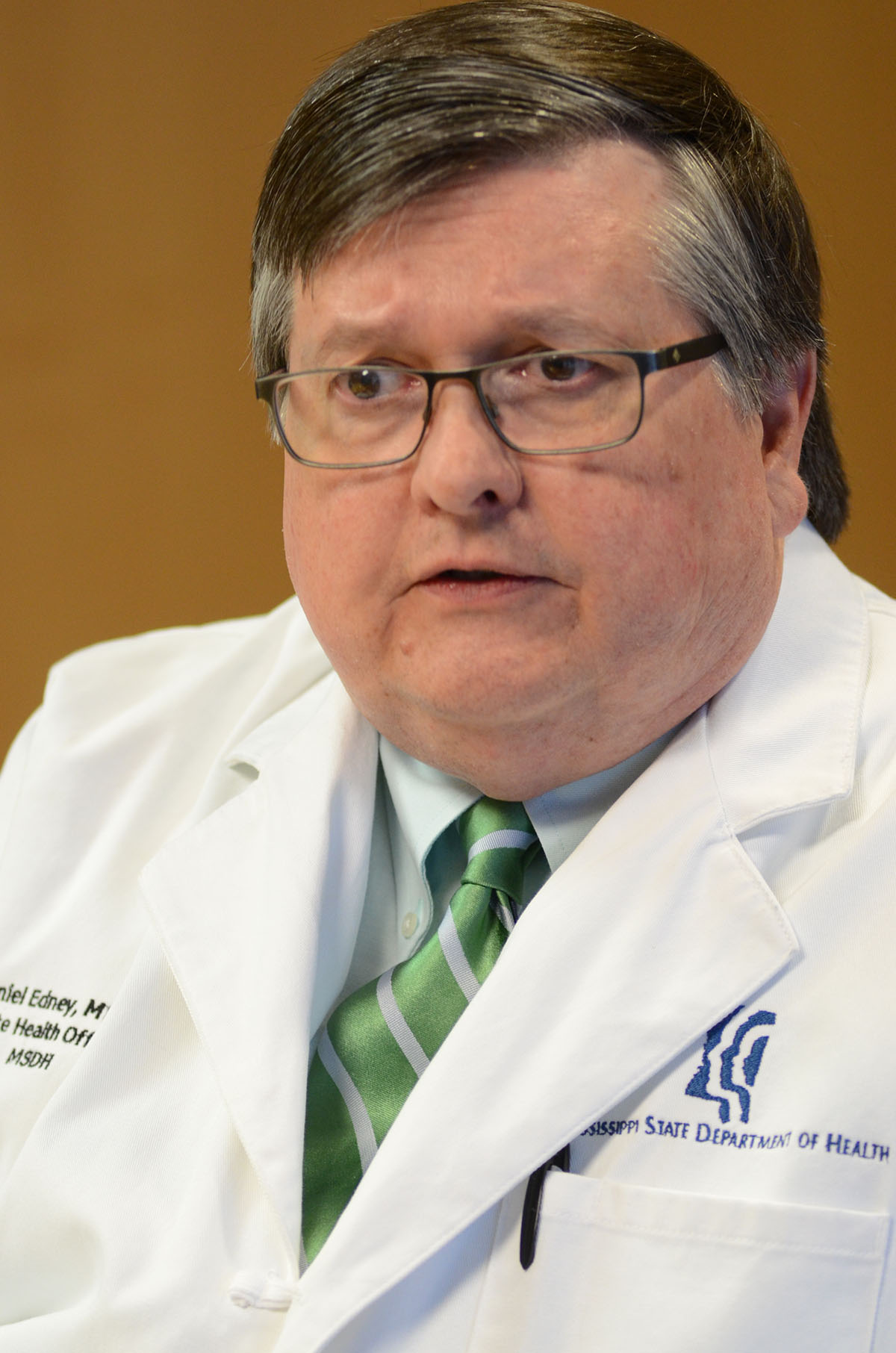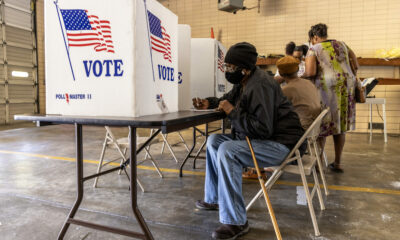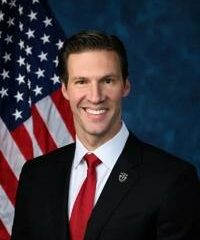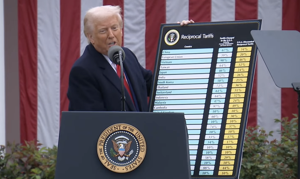Mississippi Today
‘We have been struggling.’ As Mississippi’s health care crisis worsens, health department funding lags
State Health Officer Dr. Dan Edney made one big ask of lawmakers this year: $9 million to hire the nurses needed to fully staff county health departments and a program that puts nurses in the homes of low-income pregnant women with high-risk pregnancies.
As he made the request, news headlines in Mississippi and around the country reported on the state’s financially struggling hospitals, worsening maternal mortality crisis and one of the highest uninsured populations in the country as the result of state leaders’ steadfast opposition to Medicaid expansion.
Still, the answer he got was no.
That’s not a novel response from lawmakers — the agency’s budget was slashed in 2017 and is still making up for the loss. But this year, it could be especially damning as the state’s health care crisis reaches a breaking point.
As hospitals bleed out and it becomes increasingly dangerous for Black Mississippians to give birth in the state, the need for public health services offered by the Mississippi Department of Health is seeing a resurgence.
“That was my testimony at the Legislature,” said Edney, the agency’s leader. “I reminded them … we are having to do more, which is not good. It’s a sign that the needle is moving the wrong way.”
But there’s a limit to what his agency can do without adequate funding.

The Healthy Moms, Healthy Babies program, a partnership between the department and the state Division of Medicaid, puts nurses in the homes of expecting mothers who are undergoing high-risk pregnancies. The program serves about 700 moms, Edney said.
He knows the number of moms involved in the program needs to grow. But to do that, he needs more nurses — an increasingly difficult resource to come by in Mississippi, where nurse vacancies and turnover rates are at their highest in a decade.
The $9 million would have paid for a total of 100 nurses, the bare minimum Edney said he needs to adequately cover the state’s public health needs.
The money needed to come from the state, Edney said, because federal funds have strict strings attached.
“One way I explained it at the Capitol was that state-funded nurses could do whatever we needed them to do,” Edney said. “I need Swiss Army knives. The feds give you the knife, and they tell you how to use it.”
But instead, as the agency’s responsibilities continue to grow, they got just enough to keep operating and cover inflationary costs for the next year — despite lawmakers starting the year with a historic $3.9 billion surplus.
Republican Rep. John Read, House Appropriations Chair and principal author of the Health Department’s appropriations bill, said the decision-making process was about prioritization.
“We had some money, but it’s like everything else: You don’t want to spend all your savings,” he said. “Everybody in this legislature wants to help everybody we can … Nobody gets 100% of what they asked for. There’s no way.”
Read maintained that the department’s staffing issue isn’t about their state appropriation — it’s about the nurse availability and desired salaries. To Read, hiring 100 nurses sounds impossible.
Still, Edney can’t hire even one of the 100 nurses without funding.
In an interview with Mississippi Today, Edney said he was grateful for the money his agency did get. He repeatedly expressed his desire to do the necessary work with what he got.
“We’ll keep trying,” Edney said. “That doesn’t mean we ignore those needs. We’ll push ahead with resources that we can find.”
The agency operates with a total budget of over half a billion dollars. The vast majority of that budget comes from federal dollars and a variety of fees generated from other agency operations. Less than 10% comes from the state.
Though the state portion is small, it is essential to the agency’s ability to fulfill its job.
It’s the mission of the state Health Department to promote and protect Mississippians’ health. That includes surveilling for diseases and sexually transmitted infections, as well as other preventative public health efforts. The agency is also responsible for overseeing water testing, inspecting restaurants and licensing and regulating health care facilities.
This year, the Legislature gave the state Health Department $48 million. Of that, about half will go to agency operations, which includes salaries for state-funded positions. The other half goes elsewhere — the state Department of Health acts as a conduit for millions that will fund programs within their agency and others.
While Edney was hoping to increase pay for his employees, he wasn’t able to secure enough funding to hand out uniform raises — just for the lowest compensated employees in the department.
The agency is experiencing a vacancy rate of over 40% across departments – meaning almost one of two jobs at the agency are not filled – according to Edney.
On paper, it looks like the agency got a huge increase in funding, up $13 million from last year. But $12 million of that money is set to go to the Victims of Crime Act program, which provides services for victims of domestic abuse, childhood violence and human trafficking. It’s a program that’s only recently been added to the state Health Department’s list of responsibilities, as well as the state’s new medical cannabis program.

The remaining $12 million of the state appropriation is split among systems such as trauma care, emergency medical services, AIDS-related services and drugs, stroke and heart attack care programs, domestic violence prevention, Mississippi qualified health centers, the early intervention program and Medicaid matching.
And in a last minute change toward the end of the legislative session, lawmakers also decided to task the department with choosing the state’s next burn center and awarding it $4 million. Merit Health Central in Jackson closed Mississippi’s only accredited burn center in October.
“I have to remind folks we’re happy to administer grants and direct funding from the Legislature,” Edney said. “But we had to keep our focus on what is our core appropriation. That appropriation that helps us achieve the things we have to achieve to make sure that the most vulnerable populations in the state are served to the best of our ability.”
For agency operations, the Health Department got an increase of about $720,000, which Edney said covered cost increases caused by inflation.
“So we didn’t go backwards,” Edney said.
In the newly painted lobby of Yazoo County’s renovated health department, Edney was candid about the state Health Department’s financial limitations.
“If I had the money, I would have done it yesterday,” he said of the county health department’s reopening on Monday.
It had been closed since September of last year.
“I have begged for the money to get our county health departments back open again,” Edney said. “We have been struggling.”
Within a month, David Caulfield, central regional administrator for the state Health Department, said the Yazoo clinic will be open four to five days a week, up from its temporary twice-a-week schedule, and be fully staffed.
It’s typically up to the individual counties to provide and pay for their county health department’s building, while the state pays to staff it.
“I want to personally thank the Board of Supervisors for caring about public health in Yazoo County,” Edney said. “Not every county has the same commitment to public health. They don’t look after their folks the same way you do it.
“I can’t tell you the joy in my heart to see this today because it shows me what we can do in Mississippi.”
But Yazoo County’s health department isn’t the standard — it’s an outlier.
As the state Health Department has been gutted by budget cuts over the past decade while simultaneously being tasked with more responsibilities, county health departments have suffered.

After the major budget cuts in 2017, hours were reduced at the majority of county health departments, and they became much harder to staff, Edney said. Services have been cut, too — county health departments stopped offering prenatal care in 2016.
And as hospital closures continue to loom — a report puts a third of rural hospitals at risk — it’s not apparent that the state Health Department is prepared to fill the gaps.
“We utilize all the resources we can from our federal partners to help the county health departments, but the (Centers for Disease Control and Prevention) does not fund public health at the county level,” Edney said. “It’s up to us to do that, and we just don’t have enough state funding to run 86 county health departments the way that we would love to run them.”
While county health departments remain a place where Mississippians can access vaccinations, STI testing, diabetes and hypertension care, tuberculosis screenings and treatment, pap smears, family planning and pregnancy testing, Edney wants to increase staffing and get health departments open longer more days a week. They’re also exploring restarting prenatal care at county health departments.
It’s not clear how he’ll pay for it, but Edney’s determined to try.
“I’m not negative, because we have to do a better job on our side of the street,” he said. “We will be doing all that we can do, so when I go back to the Legislature and continue to ask for funding our workforce needs on the county level, I can honestly say we’re doing all we can.”
This article first appeared on Mississippi Today and is republished here under a Creative Commons license.
Mississippi Today
Mississippi prison death under investigation
The Mississippi Bureau of Investigation is investigating the death of an inmate at the Central Mississippi Correctional Facility earlier this year.
Prison officials reportedly told Mississippi authorities that inmate Melvin Cancer had suffered a heart attack, but a recent autopsy has since ruled his death a homicide.
“I’d like for it to be thoroughly investigated to see what did happen,” said Juan Barnett, chairman of the Senate Corrections Committee. “Even though people in prison have committed crimes, I still believe in humane treatment for everybody.”
After fellow inmates at Central Mississippi Correctional Facility repeatedly complained that Cancer would not bathe, prison officials reportedly dragged him into the shower, where he may have suffered fatal injuries.
On Jan. 22, Cancer was declared dead at the University of Mississippi Medical Center. The 53-year-old inmate had been serving eight years in prison after pleading guilty to a 2019 aggravated assault in Hinds County.
Jeremy St. Julian is the third person to serve as superintendent at the Central Mississippi Correctional Facility in less than a year. Some staff members have reportedly been placed on administrative leave.
“Either we’re hiring bad people, or we need to look at the people doing the hiring,” Barnett said. “There has to be some accountability somewhere.”
Public Safety Commissioner Sean Tindell said he could not comment on the matter. The Mississippi Department of Corrections did not respond to a request for comment.
This article first appeared on Mississippi Today and is republished here under a Creative Commons Attribution-NoDerivatives 4.0 International License.
Mississippi Today
A self-proclaimed ‘loose electron’ journeys through Jackson’s political class
The day after Tim Henderson finished third in Jackson’s mayoral primary, garnering 3,499 votes, the retired Air Force lieutenant colonel was planning to pack up his office at the Jackson Medical Mall and be out by the end of the week.
Henderson figured that’s what losing candidates do. Then he said his older brother gave him a different perspective: Henderson had just established a base of people who had rejected the city’s status quo, and he shouldn’t let them down.
“That’s what happens all the time,” Henderson said. “Candidates show up, they don’t win, the stuff they talked about doing, they walk away, and they leave the people hanging, which is partly, probably why people have lost faith in the process.”
As the 54-year-old space industry consultant spoke with friends, family and politicos last week, he began to look at those 3,499 votes differently. Instead of an outright loss, the numbers seemed to represent something remarkable: In a city where name recognition is king, it took less than a year for Henderson to go from a name few knew to finishing just 786 votes shy of the incumbent, Mayor Chokwe Antar Lumumba.
He did it with a handful of volunteers and few connections to the city’s powerbrokers or politically connected church leaders or nonprofits. In fact, Henderson thinks his relatively little clout is precisely why he did so well.
“People insulate themselves inside of certain circles, and the problem a lot of people have with Henderson is I wasn’t connected or associated with any of those cliques,” he said. “People immediately started asking, who knows him?”
Now, Henderson is contemplating what he’s going to do next.
“I can be the mayor of the city hall, or I can be the mayor out here on the streets,” he said.
Beholden mainly to God and the truth, he said, he’s ready to talk – with little filter – about what Jackson needs to anyone who wants to listen. He described himself as “a loose neutron, or a loose electron, free radical.”
“Not radical in the sense of ‘radical’ but somebody that doesn’t have to be guarded in how I do things,” he said, adding, “Now I can say things other people can’t say and I can represent things the right way.”
He’s not sure he’ll endorse anyone. Henderson said that in the past week, he’s met with the Lumumba campaign, as well as state Sen. John Horhn, whose 12,359 votes nearly preempted a runoff. To win the Democratic nomination outright, Horhn would have had to secure around 500 of the votes Henderson or 10 other candidates received.
Both asked what their campaigns needed to do to get Henderson’s support. He says he told them the same thing: Start an Office of Ethics and Accountability, one of his chief campaign goals.
He wouldn’t say which candidate said what. But one told him they weren’t sure the city had the funding for it. He recalled the other asked if Henderson would work with them if they started an Office of Integrity, to which Henderson responded “only by my rules.”
Through a spokesperson, Horhn said he wants to bring more accountability to the city’s procurement process and that his ongoing discussions with Henderson have been “productive.”
Horhn has been a senator representing parts of Jackson since the 1990s, and Lumumba is finishing his second term as mayor. If nothing has changed in the city in the last eight, or 32, years, Henderson reasons that’s because the people with power and connections, including those behind the scenes, don’t want change.
When Henderson moved back to the city two years ago, the Cleveland, Miss. native and Mississippi Valley State University graduate moved in with his brother, who lives in south Jackson.
The retired military man had two goals in mind: Develop the vacant lots he owns near the Westside Community Center — a neighborhood called “the Sub” — and start a gourmet grocery store in downtown Jackson, hopefully on the first floor of the Lamar Life building owned by longtime downtown Jackson developer Andrew Mattiace.
Henderson said he couldn’t find the funding – a common refrain in Jackson – or secure meetings with folks who might provide the funding. Still, his business endeavors bore political fruit as he met people he said encouraged him to run for mayor. That included Robert Gibbs, an attorney and developer who was working to convene a group of community and business leaders to secure a new city leader. The coalition assumed the name Rethink Jackson.
Last year, Gibbs invited Henderson to meet with Rethink Jackson members and others at the Capital Club, a highrise bar owned by Mattiace. The group was looking for a candidate to support, but Henderson recalled that Gibbs told him the meeting was not “an endorsement.”
But when Henderson arrived, he says they kept him waiting in the lobby for 30 minutes before finally calling him up to meet with the dozen or so people in the room – mostly African American leaders – who were sitting at tables around the bar.
Gibbs was there, so were Mattiace and Jeff Good, a local restauranteur.
“Before we move forward, I want to make sure the air is clear: This is not an endorsement,” Henderson recalled telling the room. “And they’re like no, nope, it’s not an endorsement. I say well let me be clear you may not hear what you want to hear this evening. I’m only going to share what I’m comfortable sharing, because what I’m not going to do is have my information travel all across the city. Is that fair? That is fair, right? OK, so let’s talk.”
When the group asked about economic development, Henderson said he brought up the Capitol Police, saying “I don’t care how much police security you put down here, you gotta put something in the parts of the city where people live,” meaning both safety and opportunity in west and south Jackson.
“They can only rob other poor people so much,” Henderson said, to which he recalled the folks in the room “just looked at me.”
Mattiace said he preferred not to comment on the election so he could remain neutral for the sake of his business. Good said he did not have a good memory of the meeting but added he thinks Henderson is a “good guy” and that’s why he did well at the polls.
Gibbs didn’t comment on the meeting but said he’s heavily involved in the Horhn campaign and doesn’t want to hurt it. He did speak to Rethink Jackson as a coalition, adding that the group also met with Horhn, Delano Funches, and Rodney DePriest, an independent, “to identify the person we felt would be the best person to lead the city of Jackson.”
After meeting with him, Henderson said he told one of the folks that he wouldn’t be back – he had a campaign to run. He didn’t hear from the group again.
Rethink Jackson debated and took a vote on which candidates “could come in on day one and start doing the things we felt the city needed in order to turn around,” Gibbs said.
“We had a vote, paper ballot voting, that we took so that people could not necessarily be influenced by someone who was in the room,” he added.
Out of about 50 people, Gibbs said only one person was unsure of Horhn. The endorsement was a campaign score for the senator.
It wasn’t just the business community Henderson says did not ultimately align with his campaign. When he talks about the status quo he wants to undo, he means nonprofits, too.
On the campaign trail, Henderson committed to personally screening all nonprofits that receive city grant funds. He wanted to send out screening criteria, categorize all the buckets of grant funding the city was dispersing, and meet with each nonprofit. But if they didn’t show up, he said he would contact their other funders.
He called this “a dogwhistle” – a tell that he was on to them.
“You’re using my data,” he said. “As the mayor, it’s my data. And if you’re supposed to be working in this city, I want to know outcomes.”
Jackson has an excess of nonprofits, Henderson said, that are all working to tackle similar social ills, from decreasing homelessness and youth violence to improving mental health. Some are doing good work and should be supported to leverage their resources. But for others, those missions are a “smokescreen,” Henderson said, and the problems remain. Coincidentally, this is a similar campaign pillar of conservative talk radio host and independent mayoral candidate Kim Wade.
“Here’s my concern: Things aren’t getting better because people don’t want them to get better,” Henderson said. “If you keep crime high, poverty high, you keep the education system where it is, you keep housing, the lack of affordable housing high, you keep jobs at the minimum wage – the only thing people have as an entry point, there’s no upward mobility. This city will never be what it can be. … Because if you wanted change, you’d work yourself out of a job.”
Within city hall, Henderson said he wanted to “clear the slate” by rehiring every department head, putting out job descriptions, and hiring candidates with a blind application – no names, race or gender attached – to ensure that a person’s “connections” were not taken into account.
“Those connections over time is why we are the way we are,” he said. “Because the most qualified person is not who you’re hiring. You’re hiring someone connected to you.”
Make no mistake: Henderson made connections, too. He said two names include Shirlene Anderson, a former chief of police under Frank Melton, and Hank Anderson, a retired administrator for IBM who worked in former governor Ray Mabus’s administration. Anderson had approached Henderson after the February debate at Duling Hall and later advised him on how to keep his message straight.
After that, Henderson made a point to answer questions as directly as he could during the candidate forums. He said he stressed: “public safety, cleaning it up, public safety, cleaning it up.”

“Everybody else is talking about economic development and all this other stuff,” he said. “I’m like, either you don’t know what you’re talking about, or you’re playing the people, or it’s both. I’m like no, you can’t get any economic development with crime the way it is.”
But perhaps the most important connection Henderson made during his run for office was with Sherri Jones, the first person to join the campaign and the station manager at WMPR.
The pair formed a kinship over their deep skepticism of the city’s elite — Black and white, activists and church leaders, and especially the politicians and the business owners who seem to be looking out for their bottom line and not for the entire community.
“You got two things you gone have to be aware of,” Jones said. “One is racism. The other is classism. Now, when you deal with the classicism, it’s about a certain group of people and a lot of them are African American and then they are connected with white people and they don’t really care if there’s racism involved or not because they got a certain agenda and it’s gonna always come back and be tied to money.”
From the perspective of the leaders at the Capital Club, the business community wants to help Jackson, so finding a mayor who works with them will result in economic advancement across the city.
Jones saw it differently.
“It’s about contracts, it’s about being in charge of the decision, what’s going to stay open, what’s going to close, how things move,” Jones said.
Nothing will change in Jackson if economic development does not include the entire city, Henderson said. South and west, too.
The primary “wasn’t just about low voter turnout,” he said. “It actually speaks to the psychological impact that the environment and the quality of life has had on people, where they totally felt dejected, rejected and disconnected.”
What he wants most of all is to bring back people’s confidence in Jackson and knows it won’t happen overnight.
“It’s about empowering the people in the city to be able to believe in it again,” Henderson said.
How’s he going to do that? He might start a nonprofit.
Editor’s note: Mississippi Today is moving this summer into the Lamar Life Building, operated by Andrew Mattiace, in downtown Jackson.
This article first appeared on Mississippi Today and is republished here under a Creative Commons Attribution-NoDerivatives 4.0 International License.![]()
Crooked Letter Sports Podcast
Podcast: Masters week is back and so is Mississippi’s Mr. Golf Randy Watkins
Former SEC golf champion and PGA touring pro is Crooked Letter’s resident expert on all things golf. He’s back with us to tell us who might win this week’s Masters and why.
Stream all episodes here.
This article first appeared on Mississippi Today and is republished here under a Creative Commons Attribution-NoDerivatives 4.0 International License.
-

 News from the South - Alabama News Feed6 days ago
News from the South - Alabama News Feed6 days ago‘Hands Off!’ Protest Held in Huntsville Saturday | April 5, 2025 | News 19 @ 9 P.M.
-

 News from the South - North Carolina News Feed6 days ago
News from the South - North Carolina News Feed6 days agoProposal: American military base retailers would exclude 4 hostile nations | North Carolina
-

 News from the South - Louisiana News Feed4 days ago
News from the South - Louisiana News Feed4 days agoNew Orleans police investigating hit-and-run crash in Seventh Ward; family says grandmother was hurt
-

 News from the South - Virginia News Feed4 days ago
News from the South - Virginia News Feed4 days agoTariffs spark backlash in Virginia over economic impact | Virginia
-

 News from the South - Kentucky News Feed4 days ago
News from the South - Kentucky News Feed4 days agoVersailles asked to conserve water, county steps in to help
-

 News from the South - Alabama News Feed7 days ago
News from the South - Alabama News Feed7 days agoTrump fires clean energy leader from TVA board without publicly providing a reason
-

 News from the South - Arkansas News Feed7 days ago
News from the South - Arkansas News Feed7 days agoMost of Arkansas dealing with flooding issues | What we know
-

 News from the South - Missouri News Feed6 days ago
News from the South - Missouri News Feed6 days agoMajor flooding around St. Peters after heavy rains












































